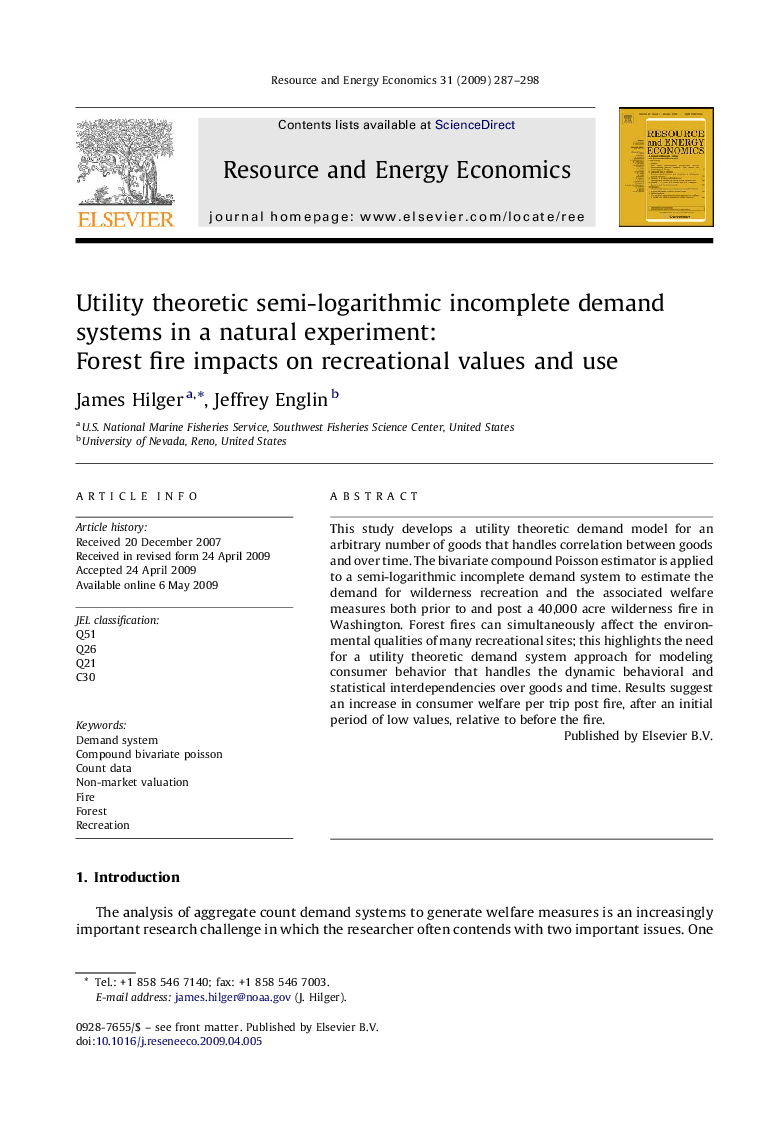| Article ID | Journal | Published Year | Pages | File Type |
|---|---|---|---|---|
| 985658 | Resource and Energy Economics | 2009 | 12 Pages |
This study develops a utility theoretic demand model for an arbitrary number of goods that handles correlation between goods and over time. The bivariate compound Poisson estimator is applied to a semi-logarithmic incomplete demand system to estimate the demand for wilderness recreation and the associated welfare measures both prior to and post a 40,000 acre wilderness fire in Washington. Forest fires can simultaneously affect the environmental qualities of many recreational sites; this highlights the need for a utility theoretic demand system approach for modeling consumer behavior that handles the dynamic behavioral and statistical interdependencies over goods and time. Results suggest an increase in consumer welfare per trip post fire, after an initial period of low values, relative to before the fire.
